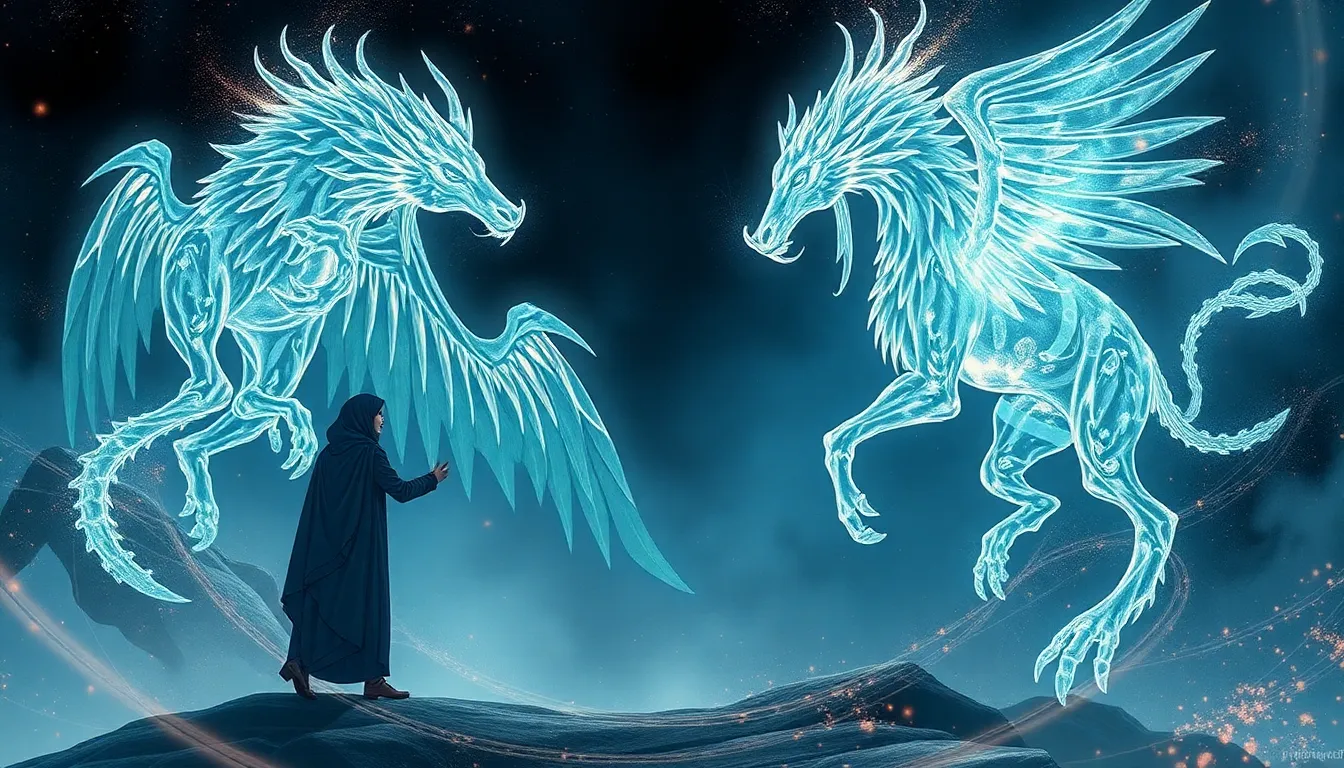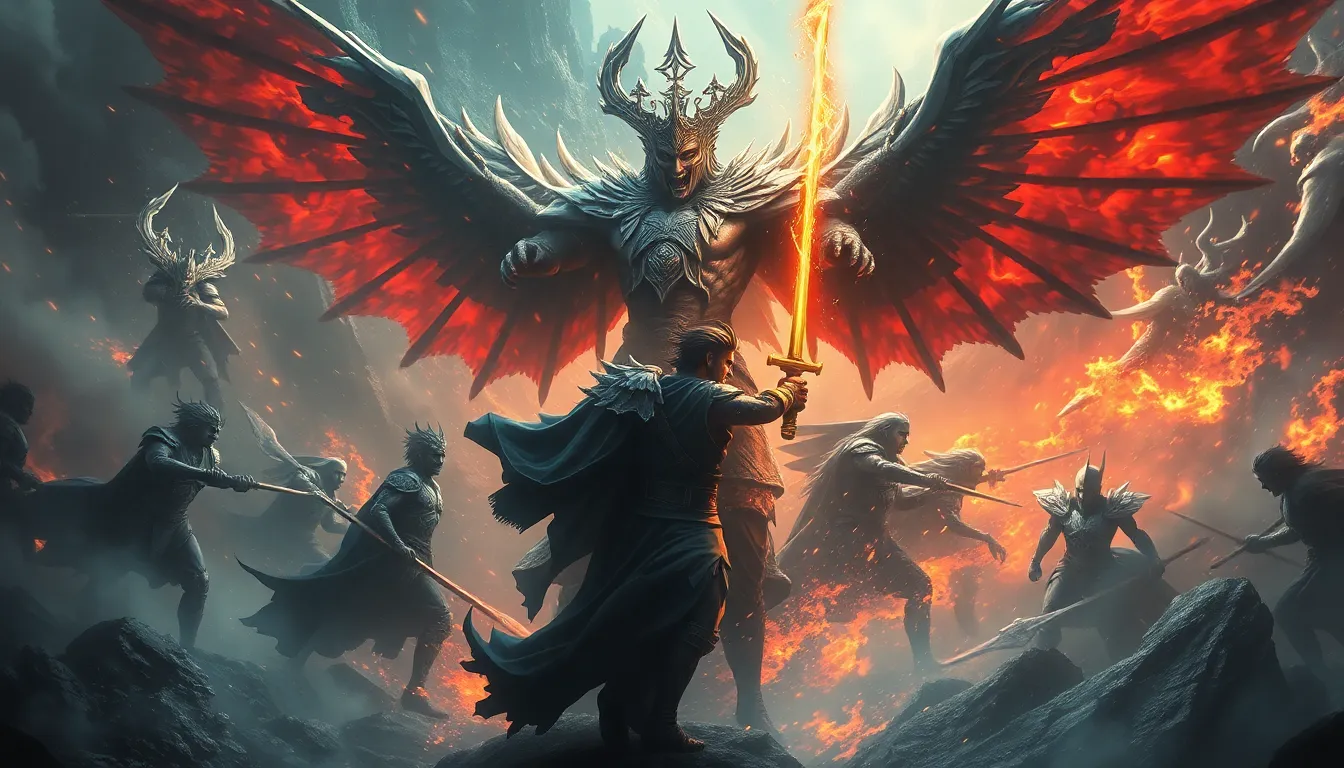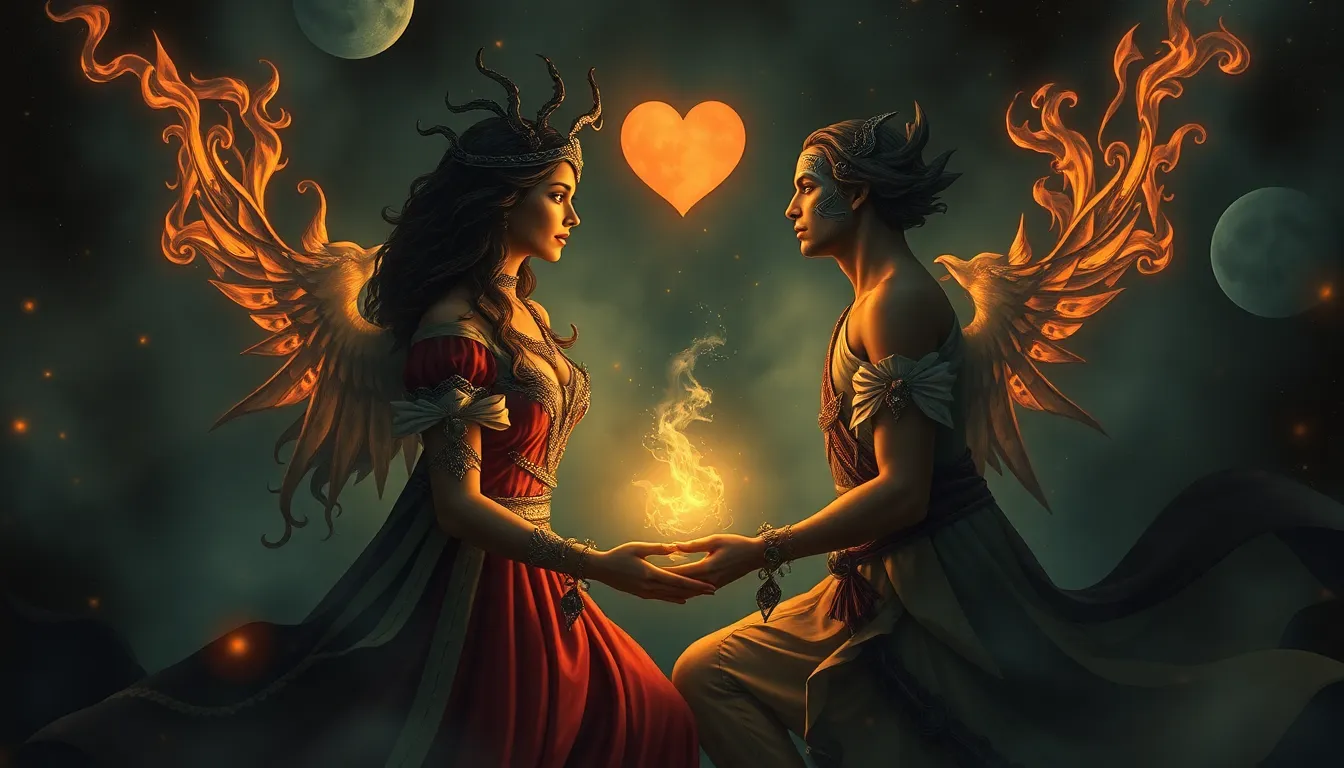Mythical Morality: What Legends Teach Us About Ethics
I. Introduction to Mythical Morality
Mythical morality refers to the ethical lessons and moral principles derived from ancient myths and legends. These narratives, rich in symbolism and moral quandaries, have been instrumental in shaping the ethical frameworks of various cultures throughout history. By examining these stories, we can gain insights into human behavior, societal norms, and the complexities of moral decision-making.
The significance of legends in shaping ethical frameworks cannot be overstated. They serve as mirrors reflecting our values, struggles, and aspirations. Myths often grapple with fundamental questions of right and wrong, justice and injustice, and the nature of human existence. This article aims to delve into the role of myths in cultural ethics, explore common themes in mythical morality, analyze iconic myths and their ethical lessons, and examine the implications of these narratives in modern contexts.
II. The Role of Myths in Cultural Ethics
Throughout history, myths have been a cornerstone of cultural identity, providing a shared narrative that binds communities together. Each culture has its unique set of myths that encapsulate its values and ethical considerations.
- Historical context of myths in various cultures: Myths date back to ancient civilizations, often serving religious and educational purposes. They were used to explain natural phenomena, instill moral values, and preserve cultural heritage.
- How stories reflect societal values and moral dilemmas: Myths reveal the moral challenges faced by societies. They often depict characters wrestling with ethical decisions, illustrating the consequences of their choices.
- Case studies:
- Greek Mythology: The tales of gods and heroes often explore themes of hubris and the consequences of defying divine order.
- Norse Mythology: Stories of gods like Odin and Thor highlight themes of sacrifice and the inevitability of fate.
- Indigenous Myths: Many Indigenous cultures use myths to convey respect for nature and community, emphasizing interconnectedness.
III. Common Themes in Mythical Morality
Mythical morality encompasses several recurring themes that resonate across different cultures and epochs. These themes provide a framework for understanding ethical behavior.
- The concept of justice and retribution: Many myths grapple with the idea of justice, often portraying a cosmic balance where good is rewarded and evil is punished.
- The conflict between individual desires and communal responsibilities: Characters frequently face dilemmas between pursuing personal goals and fulfilling obligations to their community.
- The role of fate and free will in ethical decision-making: Myths often explore whether individuals are bound by fate or if they have the agency to shape their destinies.
IV. Iconic Myths and Their Ethical Lessons
Several iconic myths offer profound ethical lessons that continue to resonate today.
- The story of Prometheus: Prometheus defied the gods to bring fire to humanity, symbolizing the value of sacrifice and the pursuit of knowledge in the face of adversity.
- The parables of Buddha: Buddha’s teachings emphasize compassion, mindfulness, and the importance of alleviating suffering, illustrating the ethical imperative of empathy.
- The tale of King Arthur: The legend of King Arthur and the Knights of the Round Table embodies ideals of honor, chivalry, and the moral responsibilities of leadership.
V. Archetypal Characters and their Moral Implications
Myths are populated by archetypal characters that embody various moral qualities and ethical dilemmas.
- Heroes: Often depicted as embodiments of virtue and moral courage, heroes inspire us to strive for greatness and uphold ethical values.
- Villains: Representing ethical failings, villains serve as cautionary tales, warning against greed, betrayal, and the abuse of power.
- Tricksters: These characters challenge moral absolutes and norms, prompting us to question established beliefs and consider alternative perspectives.
VI. The Influence of Myths on Modern Ethical Theories
The ethical lessons derived from myths continue to influence contemporary moral frameworks.
- Comparison with contemporary ethical frameworks: Myths often intersect with ideas in utilitarianism, deontology, and virtue ethics, providing a rich narrative context for understanding moral principles.
- Influence of myths on moral education: Myths are utilized in educational settings to teach ethical reasoning and moral values, making them relevant to modern discussions on ethics.
- Relevance of legendary figures: Figures from myths are frequently invoked in debates about morality, demonstrating their enduring impact on ethical discourse.
VII. Critiques of Mythical Morality
Despite their significance, mythical morality faces critiques that question its applicability to contemporary ethical issues.
- Limitations of using myths as ethical guides: Critics argue that myths can oversimplify complex moral issues, providing black-and-white answers to nuanced dilemmas.
- The risk of oversimplifying complex moral issues: The binary nature of many myths may not adequately address the gray areas in moral reasoning.
- Cultural relativism: The challenge of cultural relativism complicates the notion of universal moral lessons, as different cultures may interpret myths in contrasting ways.
VIII. Case Studies: Myths in Modern Media and Literature
Modern media and literature continue to draw upon mythical themes, reshaping our understanding of ethics.
- Analysis of mythical themes: Films and novels frequently explore mythic narratives, using them as frameworks for contemporary ethical dilemmas.
- How modern interpretations shape our understanding of ethics: Retellings of myths allow for fresh perspectives on moral issues, encouraging audiences to engage with ethical questions.
- The impact of retelling myths: These retellings can rejuvenate interest in traditional stories while prompting discussions about their relevance in today’s world.
IX. The Future of Mythical Morality
The evolution of technology and globalization is reshaping the landscape of mythical morality.
- The role of technology: Digital storytelling and social media are creating new myths that address contemporary ethical dilemmas and societal challenges.
- New narratives: As society evolves, new narratives emerge that tackle issues like climate change, social justice, and equality, reflecting the shifting moral landscape.
- The importance of preserving mythic stories: Retaining these stories in modern society fosters a deeper understanding of our shared human experience and moral complexities.
X. Conclusion: Lessons from Legends
Mythical morality offers invaluable insights into the ethical struggles that define our humanity. By studying legends, we can better understand the values that shape our societies and the moral dilemmas we face. The lessons drawn from these timeless narratives encourage us to reflect on our actions, consider the consequences of our choices, and cultivate a deeper sense of empathy and responsibility. As we navigate the complexities of modern life, the wisdom of myths remains a guiding light in our quest for ethical understanding.




